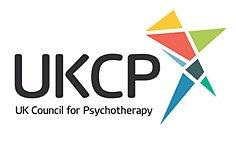Mental and Emotional Health
Dealing with emotional and mental health issues can be a challenging and complex journey and can profoundly impact our relationship with ourselves and others. Whether it’s struggling with anxiety, depression, chronic stress, or any other emotional and mental health issue, we can find ourselves facing a range of difficulties that can strain our connections with loved ones, friends, and colleagues.
Issues may include;
- Addiction
- Anger
- Anorexia
- Anxiety
- Bereavement
- Bulimia
- Confidence
- Coronavirus
- Depression
- Eating Disorders
- Fatigue
- Fertility
- Grief
- Life Changing Diagnoses
- Menopause
- Panic
- Pet Loss
- Phobias
- PTSD
- Self-Esteem
- Sleep Problems
- Stress
- Trauma
While navigating the complexities of emotional and mental health, it’s important to acknowledge that challenges may arise within intimate relationships. However, these challenges also present opportunities for growth, understanding, and fostering even stronger connections.
Mental health issues can place strain on the bond between partners, potentially leading to moments of frustration and feelings of rejection. Close friends and family members who support individuals facing mental health issues may experience moments of helplessness and overwhelm. Still, it’s important to acknowledge their own needs to prevent compassion fatigue and resentment. In the workplace, mental health challenges can impact professional relationships, making concentrating, meeting deadlines, and handling stress difficult. Co-workers may find it challenging to understand mental health issues or empathize, leading to strained interactions and potential conflicts.
At Leone Centre, we firmly believe that by educating ourselves about mental health, fostering open communication, practising empathy, and seeking professional help such as therapy, we can all contribute to nurturing healthy connections with ourselves and others.
Nurturing Mental Well-being: A Path to Empowerment
In our journey of understanding emotional and mental health issues, it is crucial to recognize the impact of societal stigma and its potential to hinder progress. By fostering a culture of empathy, education, and support, we can break down barriers that prevent individuals from openly discussing their mental health challenges. Let us explore some common experiences individuals may face and the transformative effects they can have on different aspects of life:
Embracing Emotional Stability and Resilience:
- Cultivating emotional balance and harmony
- Nurturing emotional resilience for enhanced well-being
- Fostering healthy and meaningful connections while navigating relationships
Thriving in Social Settings:
- Cultivating confidence and easing anxiety in social situations
- Engaging in social activities that promote connection and joy
- Cultivating a sense of belonging and building strong support networks
Fostering Self-Love and Empowerment:
- Practising self-compassion and embracing self-worth
- Encouraging healthy self-esteem and positive self-image
- Building relationships based on trust and mutual respect
Boosting Cognitive Clarity and Focus:
- Cultivating mindfulness techniques to enhance concentration and decision-making
- Maximizing productivity and success in work or academic pursuits
- Enhancing memory retention and cognitive abilities
Revitalizing Restful Sleep:
- Helping healthy sleep patterns for rejuvenation and vitality
- Nurturing an environment conducive to quality sleep
- Improving overall focus in daily activities and relationships
Embracing Health and Balance:
- Seeking professional help and support for substance abuse or addictive behaviours
- Strengthening relationships through open communication and understanding
- Nurturing holistic well-being for both individuals and their loved ones
Cultivating a Healthy Relationship with Food and Body:
- Encouraging mindful eating and balanced nutrition
- Promoting positive body image and self-acceptance
- Fostering a loving and supportive intimate connection
Achieving Success in Work and Academics:
- Developing effective strategies for time management and goal setting
- Building healthy professional relationships and thriving in a supportive environment
- Nurturing personal growth and resilience to overcome setbacks
Uplifting Mental Health: Seeking Support and Healing:
- Prioritizing mental health and seeking support during times of distress
- Fostering an environment of understanding and compassion for loved ones
- Building a robust support system to ensure a resilient and empowered journey
By embracing these empowering perspectives and seeking the support we need, we can embark on a path of healing and growth. Together, let us champion mental well-being and create a world where everyone feels validated, understood, and empowered.
Relationship therapy at Leone Centre
Relationship therapy at Leone Centre offers a dedicated and professional approach to supporting individuals, couples and families in navigating the complexities of their relationships. With a focus on promoting understanding, communication, and emotional well-being, therapists at Leone Centre provide a safe and non-judgmental space for couples to explore their challenges and work towards change for the better.
Drawing from evidence-based therapeutic modalities, the therapists at Leone Centre are skilled in addressing a wide range of relationship issues, including communication breakdowns, conflict resolution, intimacy concerns, and navigating life transitions.
Here are some ways counselling can provide support and guidance:
- Creating a safe and non-judgmental space: Counselling offers a safe and neutral environment where both partners can openly express their thoughts, emotions, and concerns. The counsellor ensures that both individuals feel heard, validated, and respected, fostering an atmosphere of trust and understanding.
- Understanding the impact of mental health challenges: A counsellor can help couples explore how mental health challenges affect each partner individually and their relationship as a whole. By gaining insight into the specific signs, triggers related to depression, anxiety, or addiction, couples can better understand the challenges they face.
- Improving communication skills: Mental health challenges can sometimes lead to communication breakdowns or misunderstandings between partners. A counsellor can teach healthy communication, such as active listening, empathy, and assertiveness, which can facilitate healthier and more productive conversations. Learning to express needs, concerns, and emotions in a constructive manner can enhance understanding and connection within the relationship.
- Addressing codependency and enabling behaviours: Where one partner struggles with addiction or other mental health challenges, counselling can help both individuals recognise and address codependent or enabling patterns. Couples can learn healthy boundaries, understand the dynamics of their roles, and develop methods for supporting each other without sacrificing their own well-being.
- Offering education and resources: A counsellor can provide educational resources and information about mental health conditions. This knowledge empowers couples to understand their circumstances better, reduce stigma, and access appropriate support networks, whether it’s individual therapy, group support, or medication.
- Supporting self-care and mutual support: Counselling emphasizes the importance of self-care for both partners. Couples are encouraged to identify and prioritise activities that promote their well-being, individually and as a couple. By supporting each other’s self-care practices, couples can build resilience, maintain their own mental health, and provide a reliable support system for one another.
- Facilitating problem-solving and goal-setting: A counsellor can help couples identify specific issues or challenges related to mental health and work collaboratively to find solutions. Through problem-solving methods and goal-setting exercises, couples can create a roadmap for managing mental health challenges, enhancing their relationship, and improving overall well-being.
It’s important to remember that counselling is a collaborative process, and the success of therapy relies on both partners’ active engagement and commitment. With professional guidance, couples can navigate the complexities of mental health challenges and strengthen their relationship, fostering resilience, understanding, and mutual support.
Individual Therapy
Dealing with emotional and mental health issues is an intensely personal struggle that often goes unseen by others. It’s a journey fraught with challenges that can consume one’s thoughts and emotions. The stigma surrounding mental health further complicates the struggle, as individuals may hesitate to seek help due to fear of judgment or a sense of inadequacy. Yet, amidst the darkness, there is resilience and hope.
Each small step forward is a triumph, whether it’s seeking therapy, practising self-care, or reaching out to loved ones for support. Ultimately, the personal struggle of dealing with mental health issues is a testament to the strength and resilience of the human spirit.
Individual therapy can be a transformative tool in the journey towards improved mental health and well-being. It offers individuals a place to explore their thoughts, emotions, and experiences with the guidance of a therapist.
Through regular sessions, therapists provide support, empathy, and a non-judgmental environment that encourages self-reflection and growth. Therapists can help identify and understand struggles’ root causes, allowing us to understand ourselves better. This self-awareness can lead to greater self-compassion, increased self-esteem, and a more positive sense of identity.














